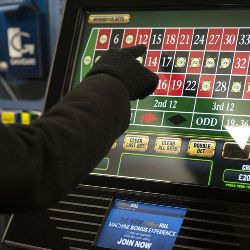Bookies Set for £1BN VAT Rebate Following FOBT Case

A recent court ruling in the UK against Fixed Odds Betting Terminal (FOBT) operators being wrongly charged VAT between 2005-13 has been won by Betfred after the popular high street bookmaker took on HMRC and won.
The tax tribunal decision found that bookmakers had been paying VAT on winnings from FOBTs when they shouldn’t have, with gambling companies such as Betfred, William Hill, Paddy Power Betfair, and Ladbrokes Coral all now in line for massive payouts totaling more than £1 billion.
What Are FOBTs?
FOBTs have been stationed inside high street bookmakers since 2001, and are electronic gambling machines that feature a range of games (with fixed odds), including slots and roulette. Each bookmaker can have up to 4 FOBTs in each shop, with the segment generating a significant amount of bookmakers’ revenues each year. In 2017, for instance, FOBTs brought in a combined £1.8 billion for bookmakers, representing a 73% increase in less than a decade.
Nevertheless, FOBTs have been in the news a lot in recent months after the maximum bets on these machines was set to be reduced by the UK Gambling Commission from £100 to just £2 in a decision made a couple of months ago. The drastic decision was agreed upon after it was discovered that 14% of the people who play FOBTs are problem gamblers, who then account for 40% of the £11 billion lost on these machines each year, or an average of around £15,000 per person. The finding was greeted with satisfaction by concerned groups, who are keen to seem more done to tackle the UK’s mounting gambling problem, with 2 million people in the country either problem gamblers (430,000) or at risk from becoming a gambling addict.
After approving the reduction, Matt Hancock, Secretary of State for the Department for Digital, Culture, Media and Sport (DCMS), said that the move was necessary in order to help vulnerable members of society, stating:
“When faced with the choice of halfway measures or doing everything we can to protect vulnerable people, we have chosen to take a stand. These machines are a social blight and prey on some of the most vulnerable in society, and we are determined to put a stop to it and build a fairer society for all.”
8 Years of Payments
The extra VAT collected over 8 years from 2005 to 2013 breached the principle of fiscal neutrality as casino establishments hosting similar games were not liable for the same VAT.
Winnings from FOBTs are currently charged at 25% under MGD (machine games duty), up from the pre-2013 figure of 15%. However, with the recent ruling, if no appeal is lodged by HMRC, bookies could be quids in with the overall payout expected to be in the region of £1 billion. Mark Stebbings, who is the director of Betfred commented:
“We welcome the decision regarding the historical tax treatment of fixed odds betting terminals which pre-dates the introduction of machine games duty in February 2013. It does not concern Betfred’s ongoing tax liabilities.”
Betfreds individual claim could see them recoup over £100 million alone. Other bookmakers are yet to comment on the ruling, but are believed to be monitoring it closely.
Budget Black Hole
If the decision goes ahead, HMRC will be left with egg on its face and a black hole of £1 billion to fill as it will be ordered to pay back money to a number of big name high street bookmakers. At the mention of an appeal, a spokesperson for HMRC declined to commit but commented that “this is an important judgment and HMRC is giving it careful consideration.”
It is believed that the black hole will be filled by the 25% MGD, which will be collected up until April 2020 following the delay of the previously mentioned FOBT maximum stake cut. The almost two year delay was instigated on the concerns of bookmakers who professed that adequate time was needed in order to prepare for such a drastic overhaul of their industry.
According to their estimates, hundreds of bookmakers and thousands of jobs would be lost as a result of the FOBT stake reduction, with William Hill CEO Roger Devlin warning that that the number would be closer to 20,000 jobs if the government decided to introduce the measures immediately. Nevertheless, anti-gambling groups have complained that the delay was made in order to satisfy the demands of bookmakers at the expense of problem gamblers, a claim vehemently denied by the government. As a spokesperson subsequently explained:
“We have been very clear that fixed odds betting terminals stakes will be cut to make sure we have a safe and sustainable industry where vulnerable people and children are protected. But we must get this right, so we’re engaging with the industry to make sure it has appropriate time to implement the changes.”










